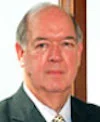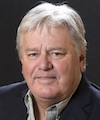No. The most annoying thing Lebron James said at his post-game news conference after losing Game Five to the Golden State Warriors wasn’t, "I feel confident ‘cuz I’m the best player in the world."
That was the most arrogant thing he said.
But the most annoying thing he said was in answer to a question about playing without two injured teammates. Replied the philosopher king, "It is what it is."
And in so answering, King James served up one of the most shop-worn clichés in the communications lexicon.
The enemy of every PR writer – particularly in this season of drafting commencement speeches - is the cliché, that tired and boring phrase that all of us have heard many times before.
For a PR speechwriter, not only are worn-out expressions like "the greatest thing since sliced bread" or "dumb as dirt" or "pleased as punch" verboten, but so, too, should be all the more mundane phrases that are displeasing to the ear.
Here, with thanks to Louisiana communications consultant Yvonne Lewis Day, is a glossary of "speech deadwood" that should be avoided by the public relations speech writer.
1. Perfunctory platitudes
Prefacing statements with timid platitudes sets a speaker up for failure. "As a matter of fact," Mark Twain is thought to have once said "precedes many a statement that isn’t."
Avoid such platitudes, which subtract from the meaning of your remarks. For instance:
· "I might add . . ."
· "It is interesting to note . . ."
· "It should be remembered . . ."
· "It is worthy to say . . ."
· "May I say . . ."
· "Permit me to say . . ."
· "With your kind permission . . ."
· Or worst of all, "To be honest . . ." which implies that you haven’t been up to now!
2. Meaningless modifiers
Also, avoid vague, modifying words that add nothing to the points you’re trying to make. Speech writers mistakenly think words like these make their speakers sound smarter. For example:
· Appreciably
· Comparatively
· Considerably
· Definitely
· Fairly
· Nearly
· Somewhat
· Suitable
· Undue
· Various
The problem with words like these is they leave the listener hanging, without knowing what to think. Much better: Tell listeners precisely, specifically, pointedly what you mean.
3. Pretentious phrases
Also, speechwriters must avoid anything that sounds legalistic or straight out of business insider jargon. Phrases like the following suggest a smugness that doesn’t help sell either the sincerity of the speaker or the credibility of the speech. Specifically, avoid phrases like these:
· "At this point in time . . ."
· "Insofar . . ."
· "Inasmuch . . ."
· "Whereas . . ."
· "In point of fact . . ."
· "bite the bullet."
· "outside the box."
· "paradigm shift."
· "at the end of the day."
So you see, Lebron, it really isn’t "what it is" if you truly wish to take your writing "to the next level."
Rather, you must use direct, specific, straightforward, descriptive language to ensure your speaker is "pleased as punch" and believes you are "the best speechwriter in the world."


 A look at today's magazines, newspapers and the graphics on television and consumer products raises the question of whether or not designers know their intended audience.
A look at today's magazines, newspapers and the graphics on television and consumer products raises the question of whether or not designers know their intended audience. PR and marketing departments are in the hot seat, as forecasts show that growth in advertising spend stalled in 2023 in the wake of cost-of-living increases and continued economic uncertainty.
PR and marketing departments are in the hot seat, as forecasts show that growth in advertising spend stalled in 2023 in the wake of cost-of-living increases and continued economic uncertainty. WPP has forged what it calls a “first-of-a-kind global agency partnership” with China’s TikTok, a short-form mobile video platform.
WPP has forged what it calls a “first-of-a-kind global agency partnership” with China’s TikTok, a short-form mobile video platform. Widespread disinformation may derail Biden/Harris agenda, according to a coalition of advocacy groups, who see the need for government-wide strategy to repair broken information ecosystem. (1 reader comment)
Widespread disinformation may derail Biden/Harris agenda, according to a coalition of advocacy groups, who see the need for government-wide strategy to repair broken information ecosystem. (1 reader comment) There's a media appetite for positive stories right now, anything to counterbalance the steady stream of bad news from the deadly spread of COVID-19. (1 reader comment)
There's a media appetite for positive stories right now, anything to counterbalance the steady stream of bad news from the deadly spread of COVID-19. (1 reader comment)


 Have a comment? Send it to
Have a comment? Send it to 
No comments have been submitted for this story yet.